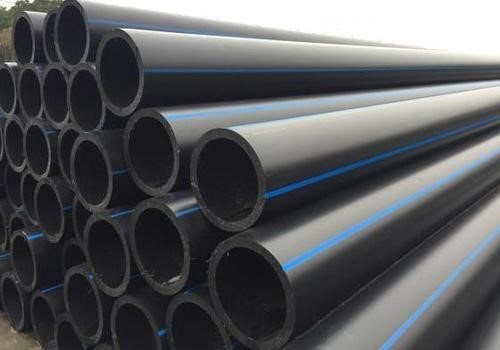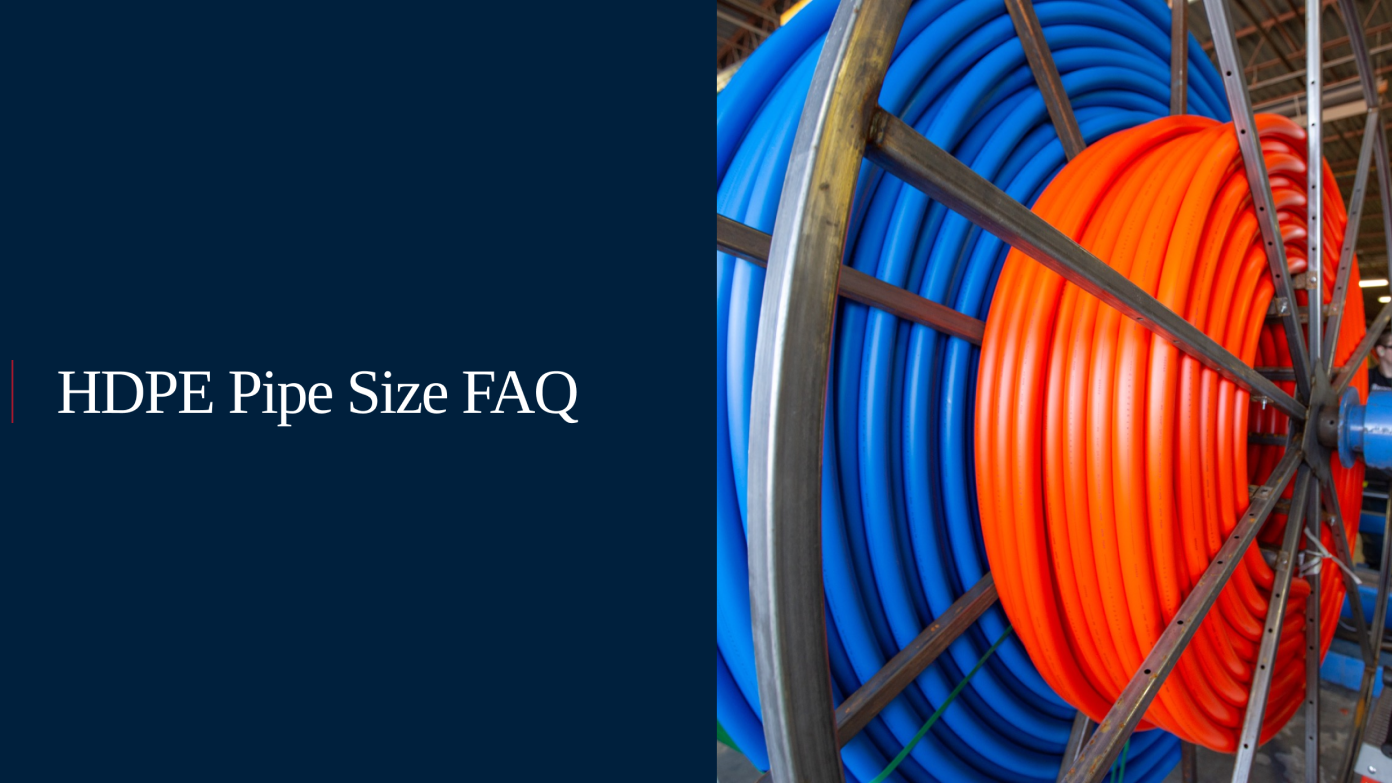Discover the most effective Alternatives for Your Following Task With Quality Pipe Products
Choosing the best pipe products is necessary for any kind of project. It includes comprehending numerous products and their certain applications. Top quality plays a crucial function in efficiency and longevity. Elements such as schedule, compatibility, and cost also need consideration. Making informed options can substantially impact the result of a job. What are the ideal options to discover, and how can one assure they are making the right decisions?
Understanding Different Sorts Of Piping
When commencing on a pipe or construction job, comprehending the different kinds of pipes available is vital. Various products serve unique objectives, making it essential to pick the right kind for certain applications. PVC pipelines, recognized for their corrosion-resistant and lightweight properties, are typically utilized for drain and watering. Alternatively, copper pipes offer resilience and outstanding thermal conductivity, usually chosen for water system lines. For gas distribution, black iron pipelines are a conventional choice because of their toughness and resistance to high pressure. In Addition, PEX (cross-linked polyethylene) pipelines have actually gotten popularity for their versatility and convenience of installation, particularly in household pipes. Each pipe kind has special attributes that influence its performance and suitability for various settings. Experience with these options helps assure that jobs fulfill safety requirements and practical needs, eventually contributing to the success of any type of pipes or construction venture.
Trick Elements to Think About When Selecting Pipeline Materials
Picking the appropriate pipeline materials calls for mindful factor to consider of several crucial factors that can considerably impact the task's outcome. First, the specific application of the pipes should be examined; different jobs might require varying levels of resistance, durability, and adaptability to temperature level or pressure. Next off, compatibility with existing systems should be reviewed to facilitate seamless assimilation and avoid future issues.
Price is one more significant variable; spending plan restrictions might dictate the option of vendors and products. In addition, the availability of products can affect the timeline of the project, making it vital to choose readily offered alternatives.
Top quality ought to not be forgotten, as inferior materials can result in difficulties and increased upkeep expenses. Local building codes and guidelines need to be taken into consideration to confirm conformity and security standards. By weighing these aspects, people can make informed decisions that enhance the success of their projects.

Comparing Materials: PVC, Copper, and PEX
Selecting the proper products for pipe materials is vital for making certain a task's success, and 3 prominent options usually considered are PVC, copper, and PEX. PVC (polyvinyl chloride) is light-weight, resistant to rust, and affordable, making it suitable for various applications, particularly in drainage and watering systems (American Plastics Company). Nevertheless, it can be less long lasting under severe temperatures
Copper pipes are renowned for their durability and reliability, offering outstanding thermal conductivity and resistance to microorganisms. Although extra costly than PVC, their longevity commonly justifies the financial investment for pipes applications.

Applications for Numerous Pipe Types
Recognizing the distinct applications of different pipe types is crucial for optimizing job end results. PVC pipes are commonly made use of in drain, waste, and air vent systems as a result of their longevity and resistance to corrosion. Their light-weight nature makes them simple to manage and install. Copper pipes, understood for their reliability and longevity, are typically used in pipes and heating unit. Their capability to withstand high temperatures makes them ideal for warm water lines. PEX pipes, with their versatility and resistance to cold, are ideal for residential plumbing applications, enabling much easier installment in tight areas. Furthermore, stainless steel pipelines are commonly employed in industrial setups where high stress and temperature level resistance are required. Each pipe type offers particular functions, and understanding these applications assists in making educated choices for different tasks, guaranteeing efficiency and effectiveness.
The Relevance of Quality in Pipeline Materials
Quality in pipe products straight affects the success of different projects, influencing both performance and longevity. Top quality pipes withstand rust, withstand stress, and preserve structural integrity over time, making them important for making sure safety and effectiveness in pipes, building, hop over to these guys and commercial applications. Inferior materials can cause leakages, failings, and costly repair services, ultimately jeopardizing project timelines and spending plans.
Additionally, quality pipelines improve the total performance of systems, whether they are moving water, gas, or other materials. They add to ideal flow prices and decrease the risk of contamination, which is specifically essential in safe and clean water systems. Buying quality pipeline supplies not only meets regulatory requirements but additionally supports sustainability by reducing waste via sturdy performance. As an outcome, choosing reputable providers who prioritize top quality can greatly affect the longevity and integrity of any type of task, establishing a strong structure for future operations.
Tips for Maintaining Your Pipelines
Normal maintenance is vital for protecting the stability and capability of pipelines in any kind of system. To assure peak efficiency, one effective technique is to perform regular inspections, looking for signs of wear, rust, or leakages. Keeping pipes clean and complimentary from debris can protect against clogs, which typically result in press build-up and possible tears. It is also suggested to keep an eye on water high quality, as impurities can damage pipe materials with time.
In addition, preserving ideal temperature levels is important; extreme changes can create materials to increase or contract, leading to splits. For systems with exterior piping, protecting pipes versus chilly weather condition can stop freezing and succeeding bursts. Recording maintenance tasks and repair work assists track the condition of the pipes and help in future preparation. By following these suggestions, people can considerably extend the life expectancy of their piping systems, guaranteeing trustworthy operation for years to find.

Where to Find Trusted Pipe Vendors
Preserving pipes successfully often starts with sourcing products from trustworthy providers. Reliable pipe distributors can be located through various channels, consisting of on the internet directories, profession programs, and sector organizations. On the internet platforms like Alibaba, ThomasNet, and local company directory sites offer considerable lists of suppliers with client testimonials and scores, assisting purchasers analyze high quality and reliability.
In addition, seeing trade convention enables for straight interaction with providers, making it possible for task stakeholders to review items firsthand. Networking within market organizations can also cause beneficial recommendations, as experts commonly share their experiences with different providers.
Local hardware stores and pipes supply shops are exceptional sources, specifically for those seeking prompt assistance. It's important to ask about warranties and qualifications, making certain that providers follow sector standards. By checking out these avenues, individuals can identify dependable pipe distributors that satisfy their job's details needs.
Regularly Asked Concerns
What Are the Usual Dimensions Offered for Different Pipe Types?
Typical pipe dimensions differ by type; for instance, PVC pipes normally can be found in 1/2", 3/4", and 1" sizes, while steel pipes might vary from 1/8" to 36". Choice relies on specific application requirements.
Exactly how Do I Know if My Pipelines Are Properly Mounted?
To figure out if pipes are correctly mounted, one ought to look for safe and secure installations, proper positioning, and lack of leaks - American Plastics Company. In addition, speaking with setup standards and looking for specialist inspection can ensure adherence to safety and security and functionality requirements
Can I Mix Different Pipe Materials in One System?
Mixing different pipe products in one system is my website usually not advised as a result of possible compatibility problems, such as differing thermal growth rates and chemical reactions. Appropriate installations and adapters may minimize some risks, but care is encouraged.
What Safety Safety Measures Should I Take When Functioning With Pipelines?
When collaborating with pipelines, one must use safety goggles, gloves, and appropriate clothing. Confirm correct ventilation, usage devices properly, handle products cautiously, and follow producer instructions Resources to stop mishaps and injuries during setup or repair services.
Are There Eco-Friendly Pipe Options Available on the marketplace?
Yes, environmentally friendly pipeline choices are offered, consisting of those made from recycled products, eco-friendly plastics, and sustainably sourced wood. These alternatives decrease environmental effect while providing sensible options for numerous construction and plumbing jobs.
The certain application of the pipes need to be assessed; various jobs might call for differing levels of versatility, sturdiness, and resistance to temperature level or stress. Choosing the ideal materials for pipeline materials is vital for guaranteeing a job's success, and three popular alternatives typically considered are PVC, copper, and PEX. Comprehending the special applications of various pipe kinds is essential for maximizing job outcomes. Top quality in pipeline materials directly influences the success of various projects, affecting both efficiency and long life. Usual pipeline sizes differ by type; for example, PVC pipelines commonly come in 1/2", 3/4", and 1" diameters, while steel pipes may range from 1/8" to 36".